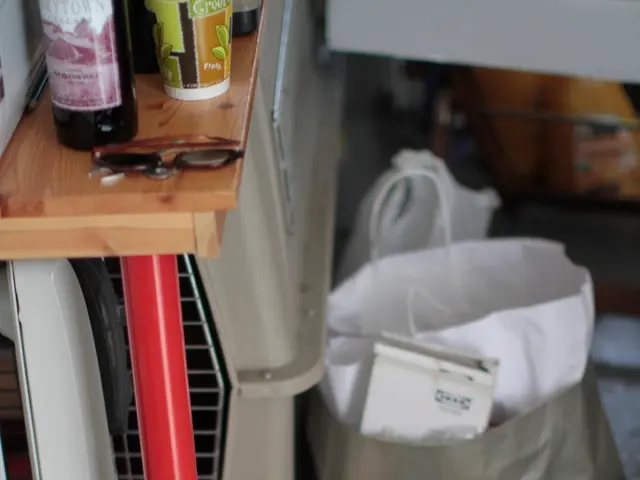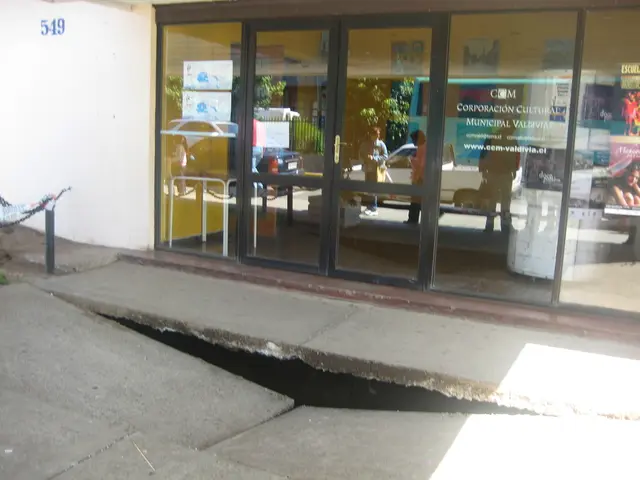In Milan, the ordeal for Adam and Alaa has ended: "Smiles shall return," they express gratitude towards Italy.
Taking Flight: Little Adam's Journey of Hope
In the city of Milan, the lights shimmered calmly, a far cry from the chaotic hellscape of Gaza. For 11-year-old Adam Al-Najjar and his mother, Alaa, it was a moment of respite after the devastation wreaked by Israeli forces. Amid flashing cameras, Adam, with his deep, sad eyes, embarked on a journey that would change his life.
Waiting to greet them was a maternal aunt from Canada, and Italy's Foreign Minister, Antonio Tajani. Tajani was beaming, "We pulled off a fantastic trip - he said. Despite the myriad tragedies afflicting Gaza, today we managed to bring a glimmer of positivity to these families. It's a gift to these mothers, fathers, families ravaged by war. Italy has done a great deal."
Tajani confided that he was emotionally touched by his encounters with the mothers and children. Their eyes, he said, held a chilling reminder of the horrors of war. They pleaded, "We don't want to return to Gaza, can we stay in Italy?" Tajani said with a hint of happiness, "I'm glad these children can find solace with their families in our country."
Defense Minister Guido Crosetto echoed Tajani's sentiments. He said, "Facing the innocent pain of children, in this case those from Gaza, all differences vanish, all borders fade..." And so concluded Adam's long journey, symbolizing the suffering of Gaza.
The journey began in the early hours, as Adam left the Nasser Hospital in Khan Younis with his discharge. A van from the WHO escorted him, and he sat between the driver and his mother, managing a smile and waving to those who wished him well. With just a blue canvas bag for luggage, his first stop was the Israeli airport of Eilat-Ramon, where he boarded one of the three military aircraft that had evacuated 16 other wounded since the conflict began. In total, 70 people, including family members, were evacuated in what was the largest humanitarian operation yet.[3][4][5]
The diplomatic effort to extract the group from Gaza was immense, involving the Italian Embassy in Tel Aviv, the General Consulate in Jerusalem, and officials from the Council of Ministers. The C-130 bound for Milan took off more than two hours late but reached its destination in less than half an hour, whisking Adam to the Niguarda hospital, one of the beacons of Italian healthcare, where he would healing physically and emotionally for the following weeks.[3]
In the sanctuary of the hospital, Adam was assessed, and his mother, a pediatrician, was consulted to determine the best possible ward for his treatment of fractures in his left arm and nerve damage. Surgery was planned, with the goal of restoring full functionality to Adam's hand.[3]
Meanwhile, others disembarked from the same plane, headed for hospitals in Milan, Bergamo, Turin, Verona, Rome, Pisa, Modena, and Bologna, illustrating the commitment of the Italian government and its partners to alleviate the suffering of Gaza's civilian population.[3][5]
These humanitarian flights have become a lifeline for those in dire need of medical attention. Italy, in collaboration with international organizations, leaves no stone unturned in its mission to provide essential medical intervention, especially to children who require specialized care not available in Gaza due to the ongoing conflict.[3][5]
- The average age of the children evacuated in the largest humanitarian operation yet was 11, as was the case for Adam Al-Najjar, who underwent treatment for fractures in his left arm and nerve damage at the Niguarda Hospital, a beacon of Italy's health-and-wellness system.
- The diplomatic efforts to evacuate Adam and other wounded individuals from Gaza were significant, involving various Italian government entities like the Foreign Minister, Defense Minister, Embassy in Tel Aviv, and General Consulate in Jerusalem, highlighting Italy's role in general news and politics.
- The horrors of the war in Gaza were chillingly reminiscent in the eyes of the affected mothers and children, emphasizing a connection between medical-conditions, science (in the context of healthcare and medicine), and the impact of war-and-conflicts on innocent civilians.








